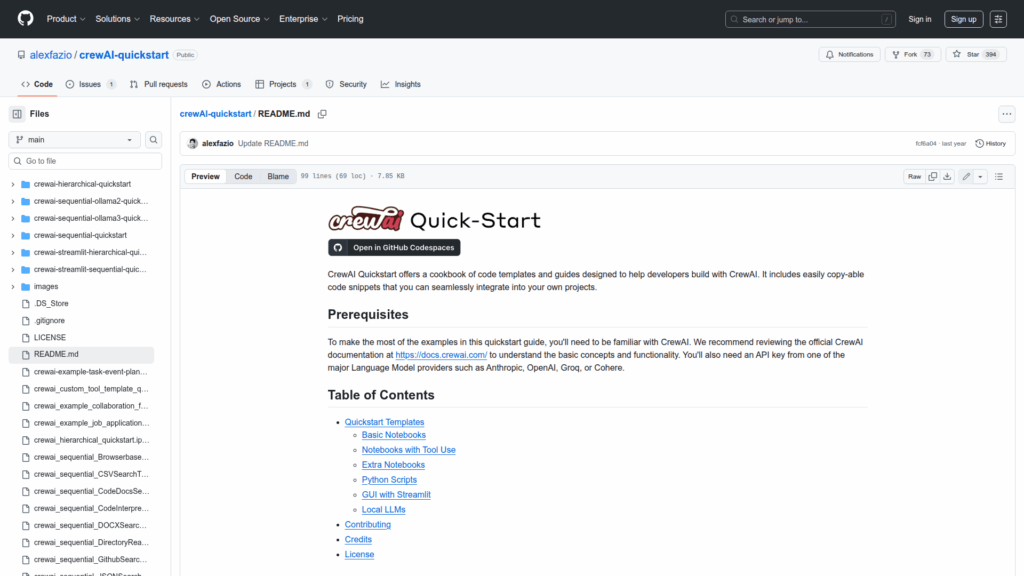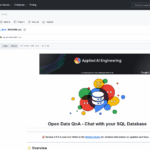crewAI-quickstart
Basic Information
CrewAI Quickstart is a developer-focused cookbook that provides code templates, example notebooks, and guides to help developers build with CrewAI. It collects sequential and hierarchical example notebooks, Python script templates, Streamlit GUI examples, and local LLM setups so practitioners can experiment with agentic workflows and tool usage. The repo is organized around copy-pastable snippets and ready-to-run notebooks demonstrating retrieval-augmented generation and tool integration. It assumes familiarity with CrewAI and requires an API key from major language model providers mentioned in the README. Contributors can adapt the templates to their own projects, extend tools, or follow example tasks such as event planning. The project aims to accelerate prototyping by offering concrete, reusable patterns and configurations for orchestrating agents and tools within the CrewAI ecosystem.








